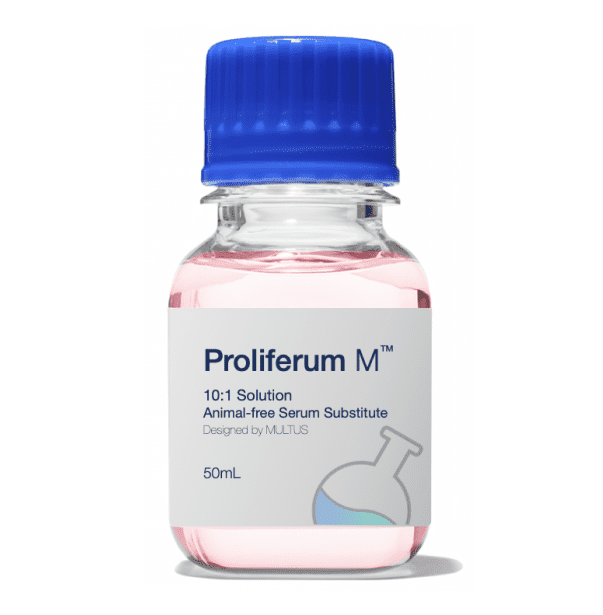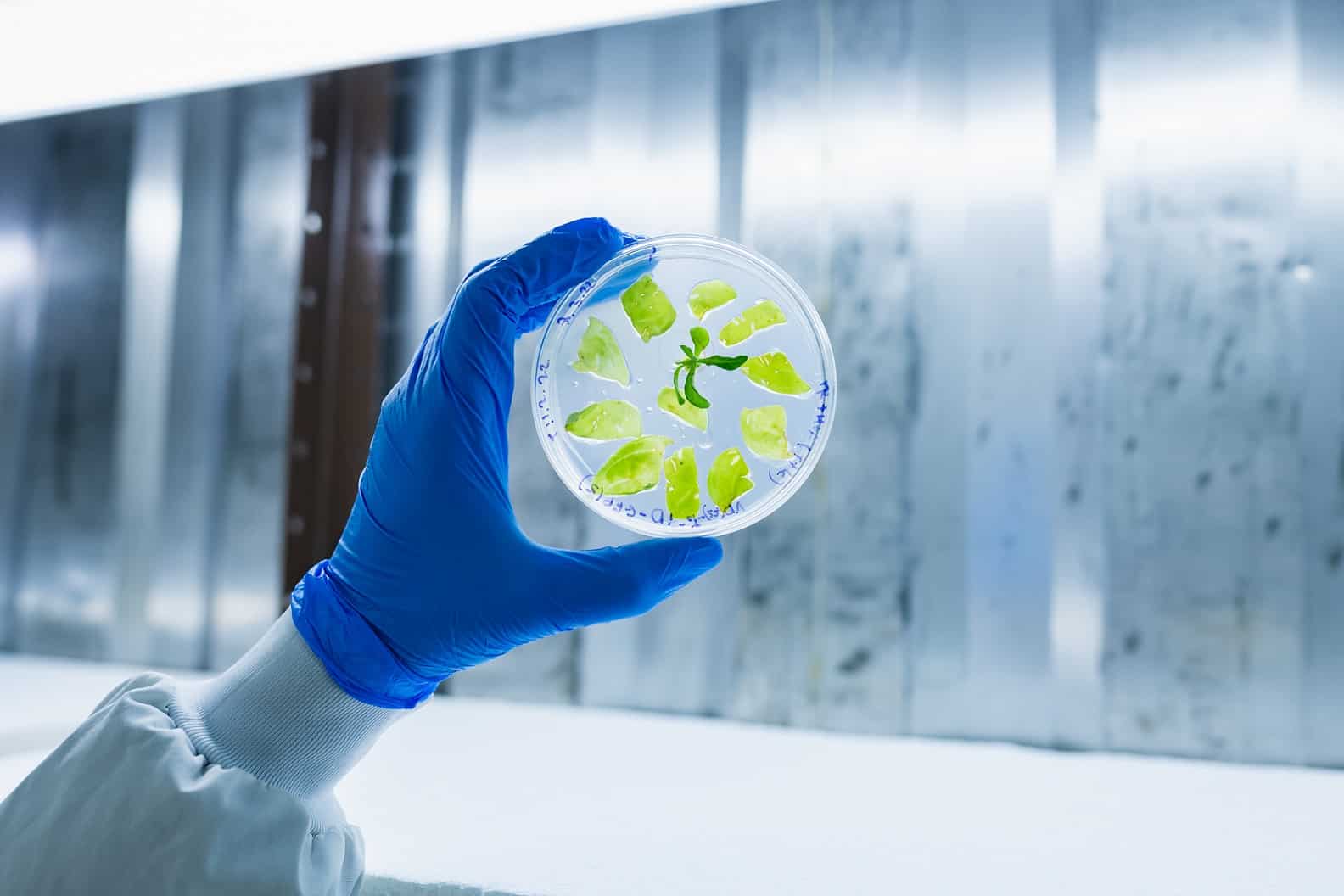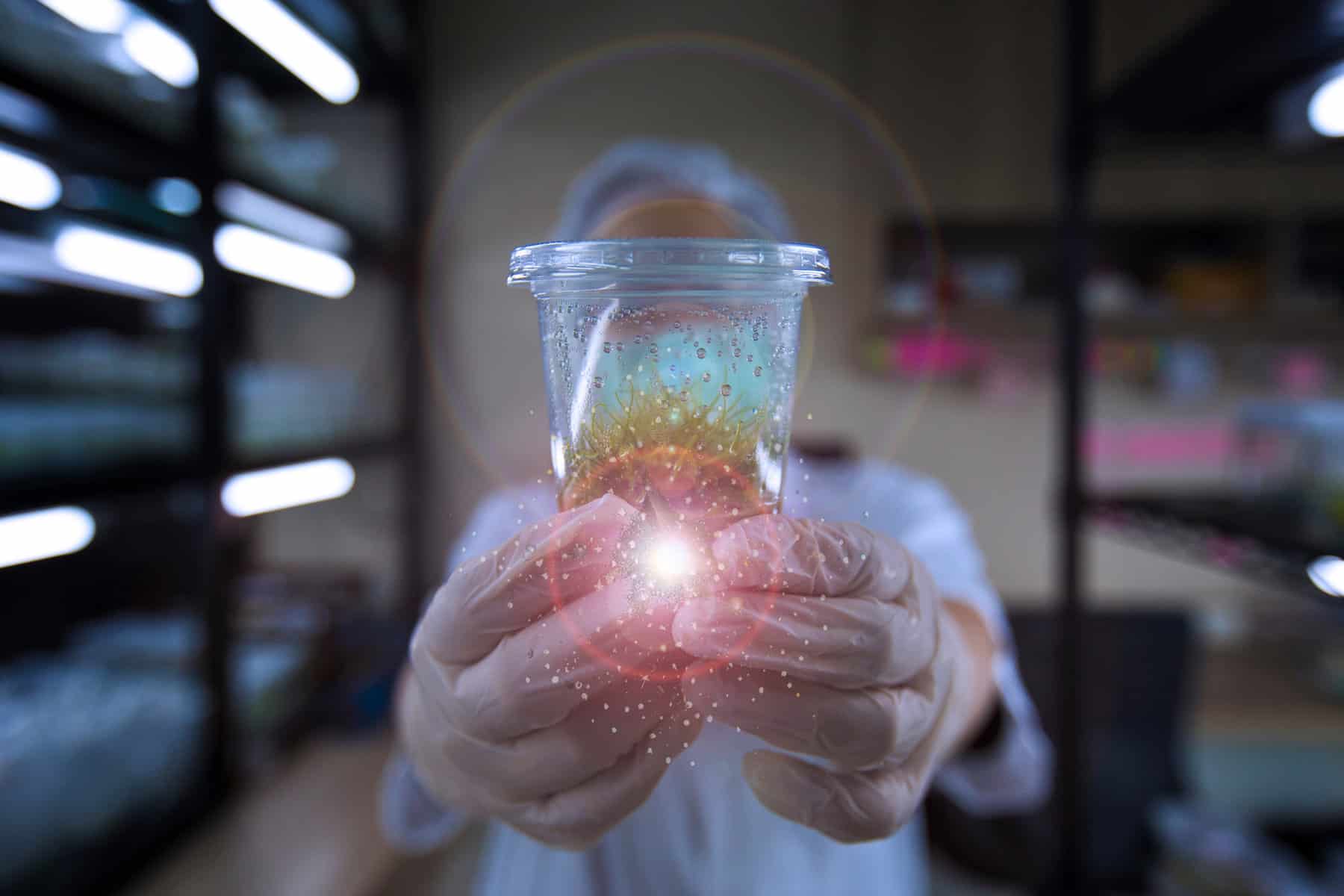Last week, GOOD Meat received the first-in-the-world regulatory approval to use fetal bovine serum-free media in its cultivated poultry production process. With this significant milestone in the history of cultivated meat, we discuss the companies paving the way for ethical, slaughter-free meat.
Removing fetal bovine serum (FBS) from cultivated meat production has been among the industry’s major challenges. FBS has been the default growth supplement for in vitro cell culture used by academic and industrial researchers and scientists, including in the cellular agriculture space.
Ethically problematic
Fetal bovine serum is made by harvesting the blood of bovine fetuses taken from pregnant cows during slaughter. Blood from the fetus is drawn out via a closed collection system and then transformed into a serum. FBS contains growth factors, hormones, and proteins and has very low antibody levels, allowing for versatility in many different cell culture applications.
It is estimated that two million calves a year are used for developing FBS.
Since the primary aim of cultivated meat is to produce slaughter-free products for ethical and environmental reasons, developing alternatives to a byproduct of the meat and dairy industries has been as crucial as developing the cell-cultivated products themselves.
Furthermore, animal serum has risks of viral contamination and also carries differences between batches since it comes from different animals. It is estimated that two million calves a year are used for developing FBS.

More reasons for serum-free alternatives
Another reason to develop serum-free alternatives is that FBS is extremely expensive (adds between 50-80 % of the costs), and cultivated meat production requires high volumes to grow meat. Companies need a low-cost alternative source of food-grade cell culture media and media ingredients to achieve price parity with animal meat.
Additionally, the annual supply of FBS has been declining because of changing policies and environmental factors, making many pharmaceutical and biotechnology companies invest in R&D for serum-free alternatives.

B2B companies developing serum-free media or/and growth factors
Many companies have focused their strengths on developing FBS-free serum and other innovations to support the production and scale-up of the cellular agriculture industry.
- BioBetter– Israel
- Bright Biotech – UK
- Biftek – Turkey
- Future Fields – Canada (note: this company experiments with fruit flies)
- Multus – UK
- Opo Bio – New Zeland
- TurtleTree Scientific – Singapore

Cultivated meat companies developing growth factors and serum-free media in-house
Other companies with strong R&D departments have invested in developing their cell culture media or a technology that allows cell growth, proliferation, and differentiation without using any medium.
- Bluu Seafood – Germany
- Believer Meats (Future Meat Technologies)- Israel
- CellulaRevolution – UK
- CellMEAT – South Korea
- Cultured Decadence – US
- GOOD Meat – US
- IntregiCulture – Japan
- Jimi Biotech – China
- Magic Valley – Australia
- Meatable – The Netherlands
- Mewery – Czech Republic
- Mirai Foods – Switzerland
- Mzansi Meat – South Africa
- Clever Carnivore – US
- Finless Foods – US
- Opalia Foods -Canada
- Orbillion Bio – US
- Upside Foods – US
- Umami Meats – Singapore
- Vow Food – Australia
- Wild Earth – US
Institutions searching for FBS replacements
- University of Vermont – US
- CELLZERO Meat – Germany
Partnerships
- Nutreco – supplier of media inputs for Mosa Meat and BlueNalu
- Aleph Farms with WACKER to produce affordable cell growth media for cultivated meat

Other companies developing cell culture media
The Good Food Institute has a comprehensive database listing most companies that work in the cellular agriculture sector. Among them, the following focus on developing FBS-free media:
- Bruno Cell – Italy
- Cell4Food- Portugal
- Cellivate – Singapore
- Cultured Blood – The Netherlands
- Defined Bioscience – US
- Edge Foods – US
- Heuros – Australia
- Intregri Culture – Japan
- Neat Meat Biotech – India
- Noubio – US
- Quest Meat- UKSimple Planter – South Korea
- Sticta Biologicals – Chile
- Vital Meat -France
- Wasna – US
Dr. Uma Valeti, founder and CEO of UPSIDE Foods, said regarding FBS: “Since day one, we knew that developing animal component-free cell feed would be crucial to fully realizing our vision of meat that’s better for the planet and its inhabitants.
“Cell feed is among the biggest drivers of cost and environmental footprint for the cultivated meat industry, and optimizing it is key to maximizing our positive impact. Our ultimate goal is to entirely remove animals from our meat production process.”






